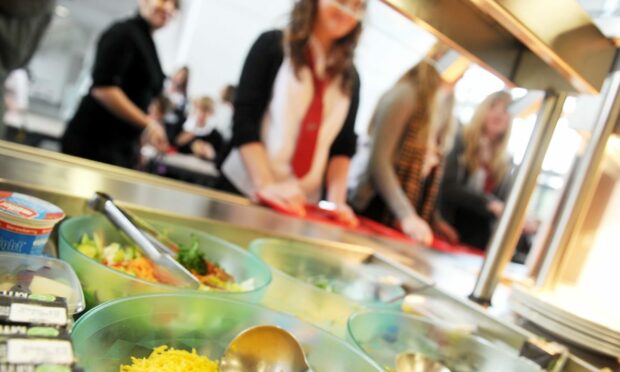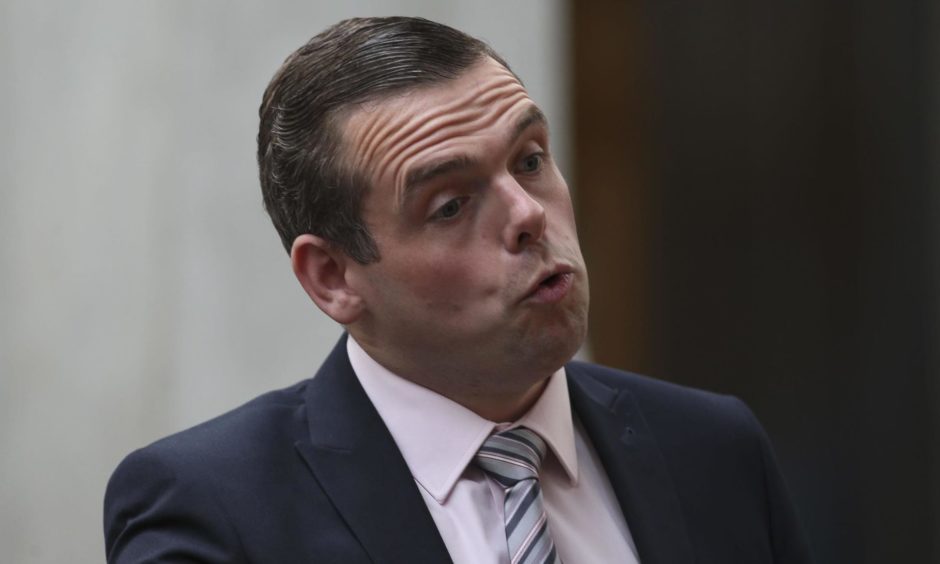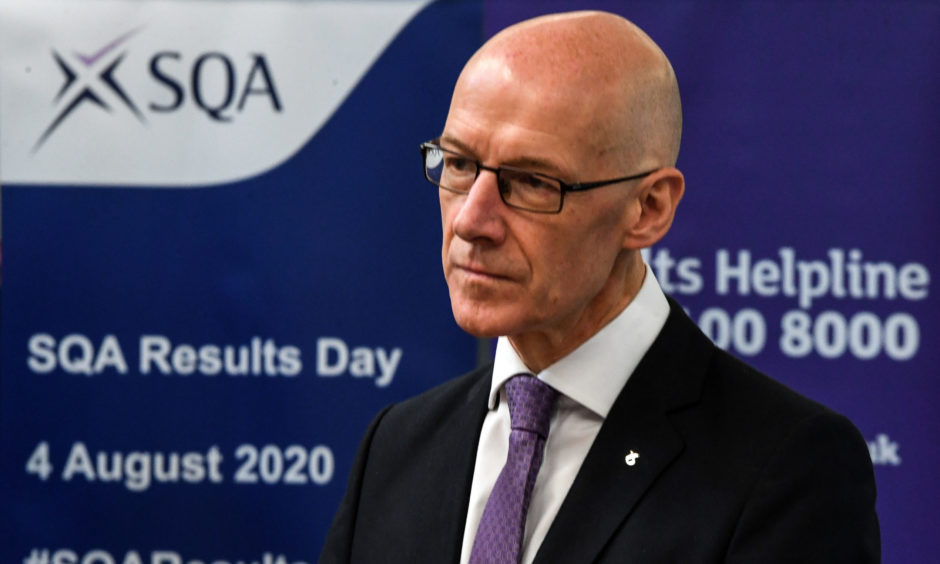Scottish Conservative leader Douglas Ross has revealed his party’s plans to give all primary school pupils free breakfast and lunch in a bid to turn around Scotland’s schools.
Mr Ross said his mother’s experience as a dinner lady had helped persuade him of the benefits of free school meals when it came to improving children’s academic performance and closing the poverty-related attainment gap.
The policy was at the heart of a Tory policy paper including a £550 million proposal to deliver 3,000 more teachers, a national tutoring programme, a commitment to improve school buildings, a new school inspection body and a new way of identifying the children who need the most help.
I have seen myself the difference that providing these meals can make. I just want to make sure no-one falls through the cracks; by giving this universally to all primary school pupils we can make sure the offer is there for everyone.”
Scottish Conservative leader Douglas Ross
The Scottish Conservative leader attacked Nicola Sturgeon’s education record when he launched the flagship policies upon which his party will fight the May 2021 Scottish Election.
“Nicola Sturgeon told us education would be her number one priority yet in her Programme for Government she had no time for an education bill,” Mr Ross said. “But she did find time for a referendum bill. And that just shows teachers, parents and pupils across the country that the SNP are only interested in separation. I’m showing today that I’m interested in schools and building success for the future.”
The policy document, titled Restore Our Schools, said Scottish education used to be considered among the world’s best and its decline was “one of the greatest failings” of the SNP years in government.
Mr Ross said his prospectus offered a laser focus on targeting poverty at school and a clear goal to restore teacher numbers.
Universal free school meals for primary pupils
Mr Ross admitted that an extension of free school meals from the current situation, where primaries one to three get their lunch, was perhaps not a policy normally associated with the Conservatives.
But his mother’s experience had played a role in developing the policy. “My mum used to be a dinner lady and school cook; she’s not got a huge amount of influence in our policy direction but I have seen myself the difference that providing these meals can make,” Mr Ross said.
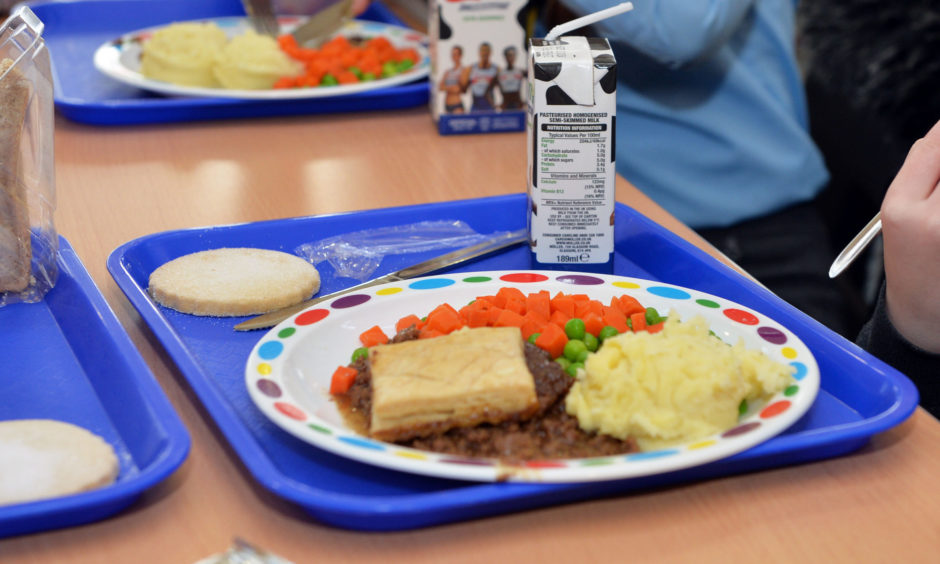
“I just want to make sure no-one falls through the cracks; by giving this universally to all primary school pupils we can make sure the offer is there for everyone.”
The Tories estimate that if implemented in full, it would cost £105m, but predicted that if the update was limited to pupils who currently pay for lunch the cost would be around £55m.
Recruiting thousands more teachers
The Conservatives claimed teacher numbers had “plummeted” compared with when when the SNP came to power in 2007. To combat this, Mr Ross said that if he got into government he would invest £550m to restore the numbers. The recruitment drive would free up teachers to spend more time with pupils.
National Tutoring Programme
Mr Ross said at the moment it is richer parents who are able to pay for tutoring. “Tutoring has in the past been more beneficial to those who can afford it and actually it can increase the attainment gap,” the Scottish Tory leader said. “And what I want to do is ensure there’s an opportunity for pupils who are identified for perhaps having fallen behind during this pandemic and other times in school they have the opportunity to get the extra support that gives them the best chance going through school and into exams.”
The scheme would be funded from the Barnett consequentials from the similar UK Government initiative that had a budget of £350 million.
Renovate crumbling schools
The Conservative document claimed 250 Scottish schools were classified as being in ‘poor’ or ‘bad’ condition.
According to the party’s research, 60,836 Scottish schoolchildren attend schools assessed as being in ‘poor’ condition and 1,050 pupils attend schools assessed as being in ‘bad’ condition. Together, they represent one in 11 of all Scottish schoolchildren.
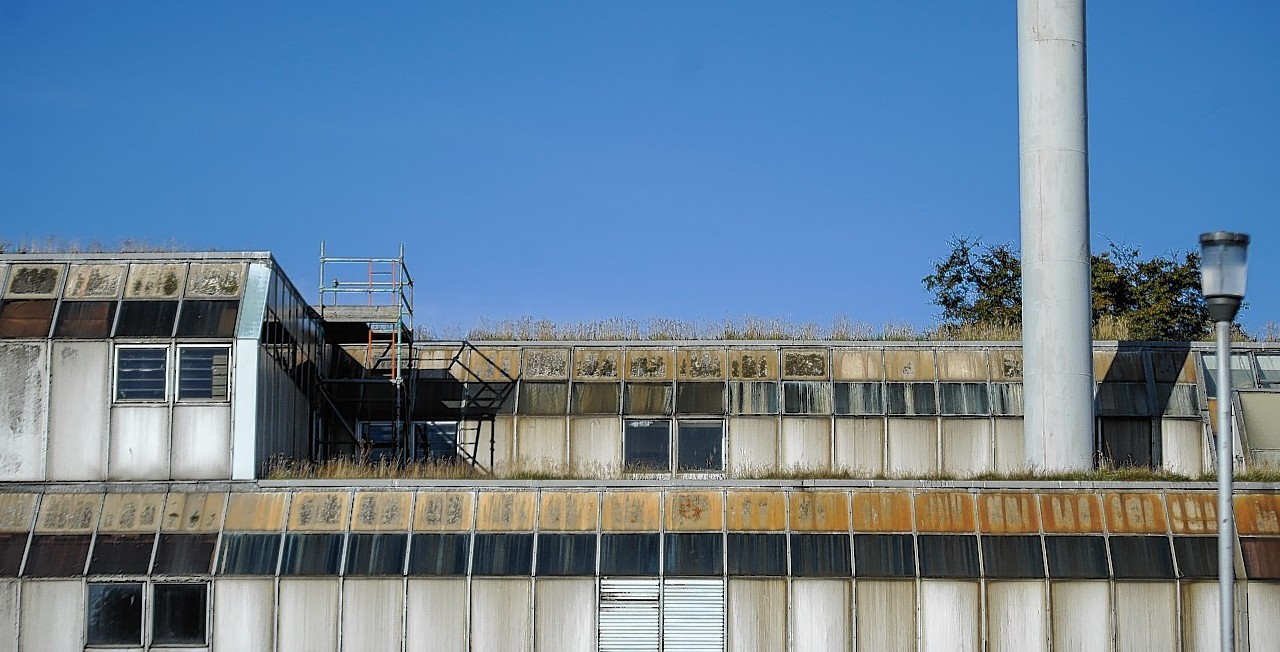
The document called for fair funding for councils to improve the school estate, saying the Scottish Government’s capital budget had gone up by 73% to more than £4.7bn. Over the same period the capital funding grant from the government to local authorities had been cut by 9%
“It is little wonder that, with SNP getting more support in capital funding at a central level but not passing that on to local authorities, we have a growing number of schools in very poor and bad condition,” Mr Ross said. “That doesn’t help pupils and it has an impact on getting people into the profession. If they are being asked to work in buildings that are considered poor and bad.”
New inspection body
The Conservatives said current quango Education Scotland had a role in running and inspecting schools and “in essence… writes and marks its own homework”.
The Tories propose establishing an independent body to inspect and review the education system that would be separate from the quango.
The new body would have a £15m budget, some of which would come from the transfer of existing functions from Education Scotland.
A fresh way of identifying the most vulnerable children
Mr Ross suggested the current method of assessing the attainment gap, whereby children from richer backgrounds outperform their poorer counterparts in the classroom, was too “broad brush”.
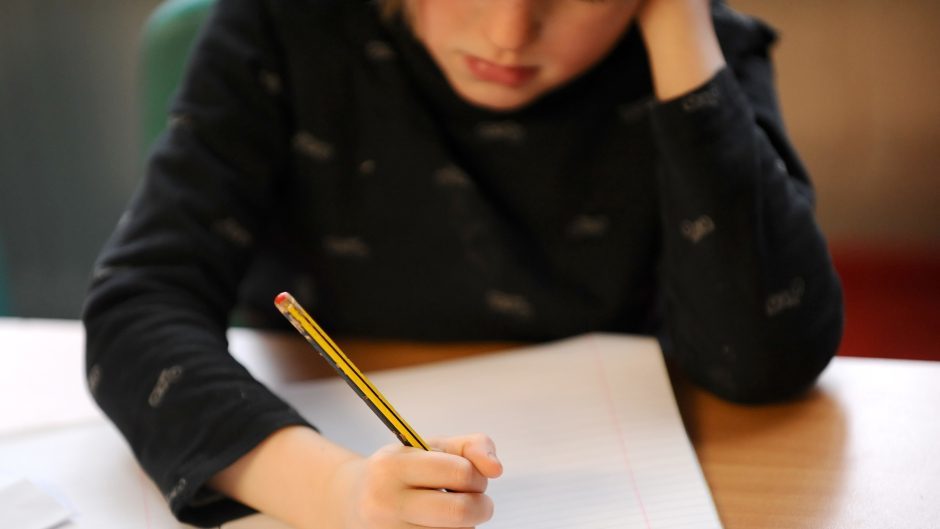
The method, based on the Scottish Index of Multiple Deprivation (SIMD), should be used as a starting point for identifying poverty in a broad fashion. But a new measurement should be created to take into account factors such as the work and educational history of their parents.
Mr Ross explained: “By the SIMD measure, on an individual basis someone could live on a street or in an area that is not identified as being an area of deprivation but that doesn’t mean every individual or family in that street is not struggling. So we need to focus more on the individual pupil rather than where they are from.”
Deputy First Minister and Education Secretary John Swinney said: “Our top priority is to reduce the poverty-related attainment gap. Teacher numbers are the highest in a decade, with the number of primary teachers the highest since 1980, and we have invested more than £750 million over the last five years in the Scottish Attainment Challenge.
“Free school meals are a vital measure for families, children and young people and our policy of providing free school meals to the 168,000 pupils in primaries one to three saves families an average of £400 per child, per year.
“The Scottish Government will consider any and all productive suggestions, no matter where they come from.”
